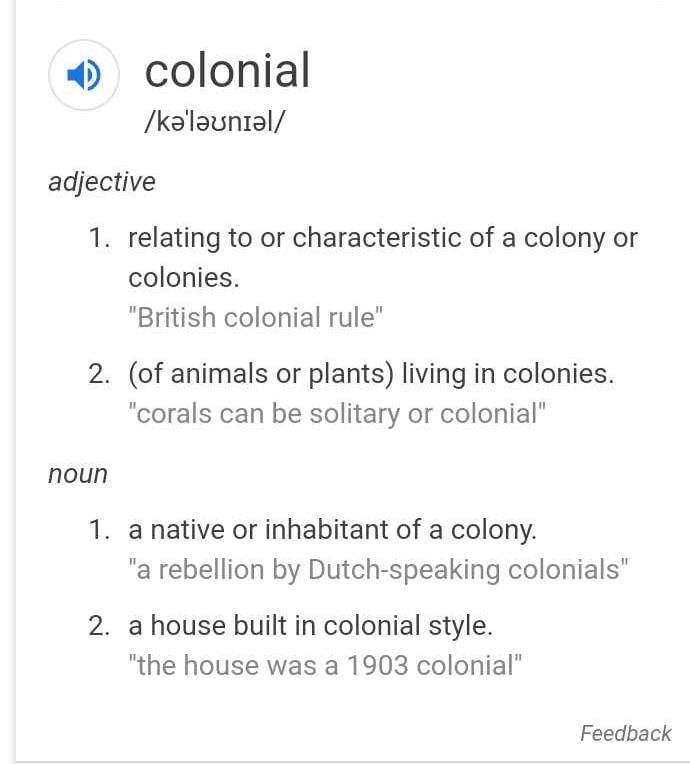Class 8 Exam > Class 8 Questions > What is colonial?
Start Learning for Free
What is colonial?
Community Answer
What is colonial?
What is Colonial?
Colonial refers to a historical period and a socio-political structure characterized by the establishment of control by one nation over a foreign territory. This often involved the settlement of people from the colonizing nation and the exploitation of resources.
Key Aspects of Colonialism
- Definition: Colonialism is the practice of acquiring full or partial control over another country, occupying it with settlers, and exploiting it economically.
- Historical Context: Colonialism became prominent from the 15th century onwards, particularly during the Age of Exploration when European powers sought new territories for expansion.
- Types of Colonialism:
- Settler Colonialism: Involves large-scale immigration of settlers who establish permanent control over land (e.g., the United States, Canada).
- Exploitation Colonialism: Focuses on extracting resources while maintaining minimal settler presence (e.g., British rule in India).
- Impact on Indigenous Populations:
- Displacement: Indigenous populations were often forcibly removed from their land.
- Cultural Erasure: Colonial powers suppressed local cultures, languages, and traditions.
- Economic Exploitation: Colonies were used for resource extraction, benefiting the colonizers economically.
- Decolonization: The process by which colonies gained independence, often leading to significant political, social, and economic changes in the post-colonial world.
Conclusion
Colonialism has had lasting effects on global relations, cultures, and economies. Understanding this concept is crucial for analyzing historical and contemporary issues related to power, identity, and inequality.
Colonial refers to a historical period and a socio-political structure characterized by the establishment of control by one nation over a foreign territory. This often involved the settlement of people from the colonizing nation and the exploitation of resources.
Key Aspects of Colonialism
- Definition: Colonialism is the practice of acquiring full or partial control over another country, occupying it with settlers, and exploiting it economically.
- Historical Context: Colonialism became prominent from the 15th century onwards, particularly during the Age of Exploration when European powers sought new territories for expansion.
- Types of Colonialism:
- Settler Colonialism: Involves large-scale immigration of settlers who establish permanent control over land (e.g., the United States, Canada).
- Exploitation Colonialism: Focuses on extracting resources while maintaining minimal settler presence (e.g., British rule in India).
- Impact on Indigenous Populations:
- Displacement: Indigenous populations were often forcibly removed from their land.
- Cultural Erasure: Colonial powers suppressed local cultures, languages, and traditions.
- Economic Exploitation: Colonies were used for resource extraction, benefiting the colonizers economically.
- Decolonization: The process by which colonies gained independence, often leading to significant political, social, and economic changes in the post-colonial world.
Conclusion
Colonialism has had lasting effects on global relations, cultures, and economies. Understanding this concept is crucial for analyzing historical and contemporary issues related to power, identity, and inequality.

|
Explore Courses for Class 8 exam
|

|
Similar Class 8 Doubts
What is colonial?
Question Description
What is colonial? for Class 8 2025 is part of Class 8 preparation. The Question and answers have been prepared according to the Class 8 exam syllabus. Information about What is colonial? covers all topics & solutions for Class 8 2025 Exam. Find important definitions, questions, meanings, examples, exercises and tests below for What is colonial?.
What is colonial? for Class 8 2025 is part of Class 8 preparation. The Question and answers have been prepared according to the Class 8 exam syllabus. Information about What is colonial? covers all topics & solutions for Class 8 2025 Exam. Find important definitions, questions, meanings, examples, exercises and tests below for What is colonial?.
Solutions for What is colonial? in English & in Hindi are available as part of our courses for Class 8.
Download more important topics, notes, lectures and mock test series for Class 8 Exam by signing up for free.
Here you can find the meaning of What is colonial? defined & explained in the simplest way possible. Besides giving the explanation of
What is colonial?, a detailed solution for What is colonial? has been provided alongside types of What is colonial? theory, EduRev gives you an
ample number of questions to practice What is colonial? tests, examples and also practice Class 8 tests.

|
Explore Courses for Class 8 exam
|

|
Signup to solve all Doubts
Signup to see your scores go up within 7 days! Learn & Practice with 1000+ FREE Notes, Videos & Tests.




























